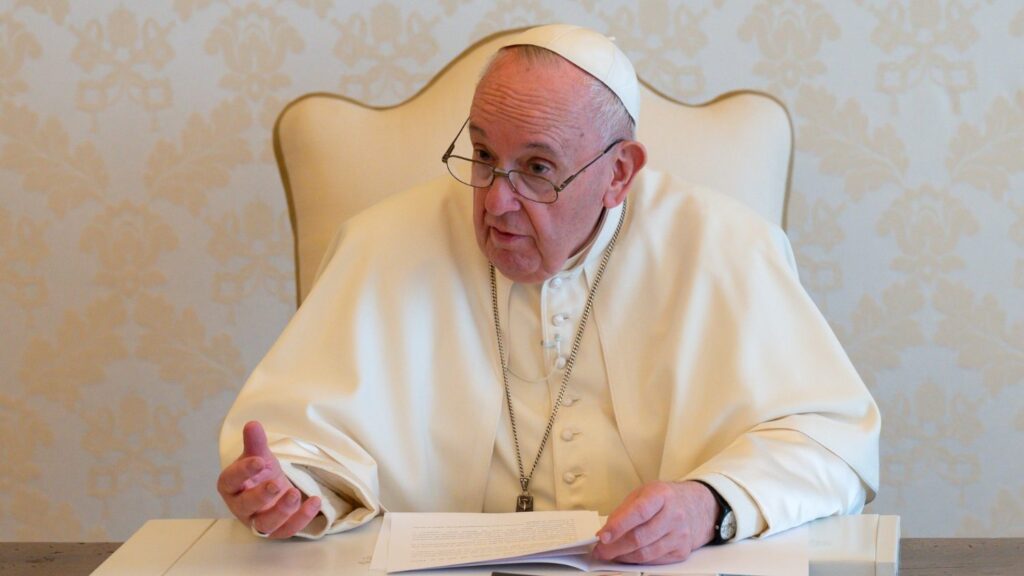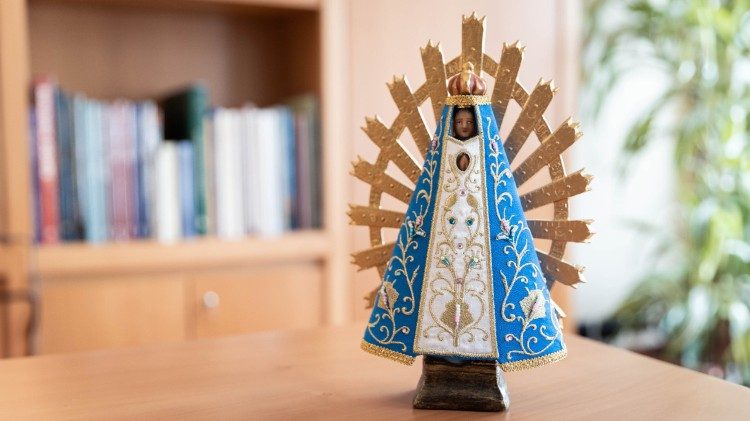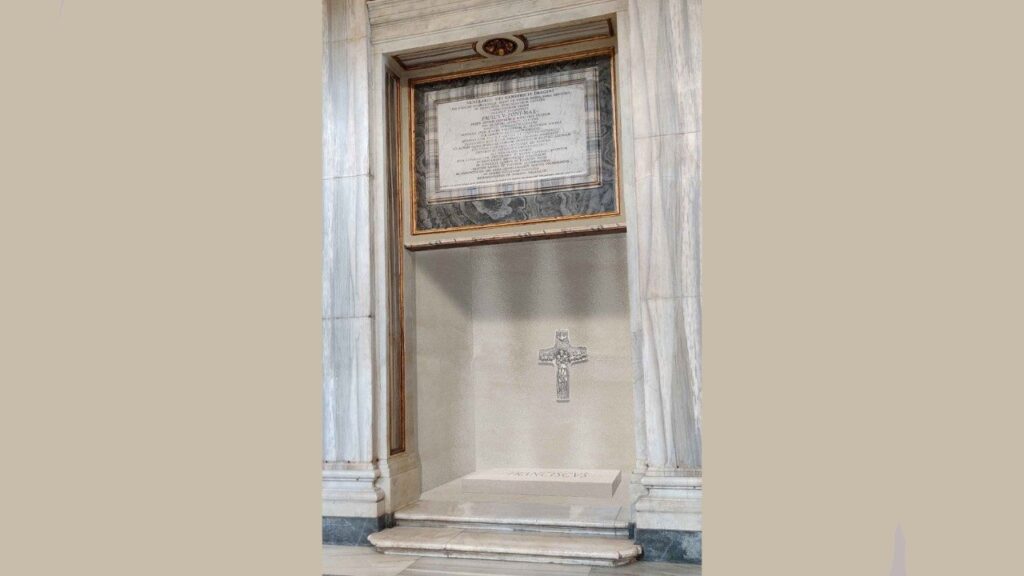“The Fathers looked to the future. And their future is our present”
Video message from Francis for the conference in Urbaniana on the centenary of the Concilium Sinense, the first and only council of the Catholic Church in China

We publish below the text of the video message that the Holy Father Francis sent to the participants in the international conference “100 Years of the Concilium Sinense: Between History and the Present”, organized by the Pontifical Urbaniana University in collaboration with Fides Agency and the Pastoral Commission for China, which takes place today in the Aula Magna of the University.
The Pontiff praises the contribution of Chinese Catholics to the harmony of social coexistence and the common home.
***
Text of the Holy Father’s video message
Dear brothers, dear sisters,
It is a great pleasure for me to have the opportunity to greet you on the occasion of the Conference dedicated to the Centenary of the Concilium Sinense, the First, and so far the only Council of the Chinese Catholic Church, which took place in Shanghai between May and June 1924, exactly 100 years ago.
The Conference is entitled “100 years since the Concilium Sinense: between history and present”, and certainly, this anniversary represents a precious occasion for many reasons.
1) That Council was indeed an important step in the path of the Catholic Church in China.
In Shanghai, 100 years ago, the Fathers gathered in the Concilium Sinense lived an authentically synodal experience, and made important decisions TOGETHER.
The Holy Spirit brought them together, allowed harmony to grow among them, led them along paths that many of them would not have imagined, even overcoming perplexities and resistance. This is how the Holy Spirit who guides the Church acts.
They were almost all from distant Countries. And before the Council many among them were not yet ready to consider the opportunity of entrusting the leadership of the dioceses to priests and bishops born in China. Then, gathered in the Council, they all made an authentic synodal journey and signed the provisions that opened up new paths, so that the Catholic Church in China could also increasingly have a
Chinese face. They recognized that that was the step to take, because Christ’s proclamation of salvation can only reach every human community and every single person if it speaks in their “mother tongue”.
The Council Fathers followed in the footsteps of great missionaries like Father Matteo Ricci, Li Madou. They followed the path opened by the Apostle Paul when he preached that it is necessary to become “all things to all” in order to proclaim and bear witness to the Risen Christ.
2) An important contribution, in the promotion and leading of the Concilium Sinense came from Archbishop Celso Costantini, the First Apostolic Delegate to China, who by decision of Pope Pius XI was also the great organizer and President of the Council.
Costantini applied a truly missionary gaze to the concrete situation. And he treasured the teachings of Maximum Illud, the Apostolic Letter on missions published by Pope Benedict XV in 1919. Following the prophetic impulse of that document, Costantini simply repeated that the mission of the Church was to “evangelize, not colonize”. In the Council of Shanghai, also thanks to the work of Celso Costantini, the communion between the Holy See and the Church in China manifested its fruits, fruits of good for all the Chinese people.
3) But the Council of Shanghai did not only serve to forget the erroneous approaches that had prevailed in previous times.
It was not a question of “changing strategy”, but of following paths that best conformed to the nature of the Church and her mission.
Trusting only in the grace of Christ Himself, and in His attraction.
The participants of the first Concilium Sinense looked to the future. And their future is our present.
The Church’s journey through history has been through unforeseen paths, even through times of patience and trial. The Lord in China has safeguarded the faith of the people of God’s people along the way. And the faith of God’s people has been the compass that has shown the way throughout this time, before and after the Council of Shanghai, until today.
Chinese Catholics, in communion with the Bishop of Rome, walk in the present time. In the context in which they live, they also bear witness to their faith through works of mercy and charity, and in their witness they give a real contribution to the harmony of social coexistence, to the building of the common home.
Those who follow Jesus love peace, and find themselves together with all those who work for peace, in a time in which we see inhuman forces at work that seem to want to accelerate the end of the world.
4) The participants in the Council of Shanghai looked to the future. And a few days after the end of the Council, they went on a pilgrimage to the Shrine of Our Lady of Sheshan, near Shanghai. We too, like the Council Fathers of Shanghai, can look to the future. And remembering the Council of Shanghai can also suggest today new paths to the entire Church and open paths to be undertaken with boldness to proclaim and bear witness to the Gospel in the present.
These very days, in the month of May, dedicated to the Virgin Mary by the people of God, many of our Chinese brothers and sisters go on a pilgrimage to the Shrine of Sheshan, to entrust their prayers and hopes to the intercession of the Mother of Jesus.
In a few days, on May 24th, the feast of Mary Help of Christians, the Church around the world will pray with the brothers and sisters of the Church in China, as Pope Benedict XVI asked in his Letter to Chinese Catholics.
I too ideally climb the hill of Sheshan, and let us all together entrust to Mary, Help of Christians, our brothers and sisters in the faith, who are in China, all the Chinese people, and all our poor world, asking for her intercession, so that peace may always win everywhere.
Mary, help of Christians, Our Lady of Sheshan, pray for us.
Related

Pope Francis Gifts a Statue of Our Lady of Luján to Gemelli and the Catholic University of the Sacred Heart
Exaudi Staff
25 April, 2025
2 min

Francis’s Tomb: A Legacy of Humility and Closeness
Exaudi Staff
25 April, 2025
4 min

The Family: A School of Love, Forgiveness, and Hope
Laetare
25 April, 2025
3 min

His Hope Does Not Die!
Mario J. Paredes
24 April, 2025
6 min
 (EN)
(EN)
 (ES)
(ES)
 (IT)
(IT)

